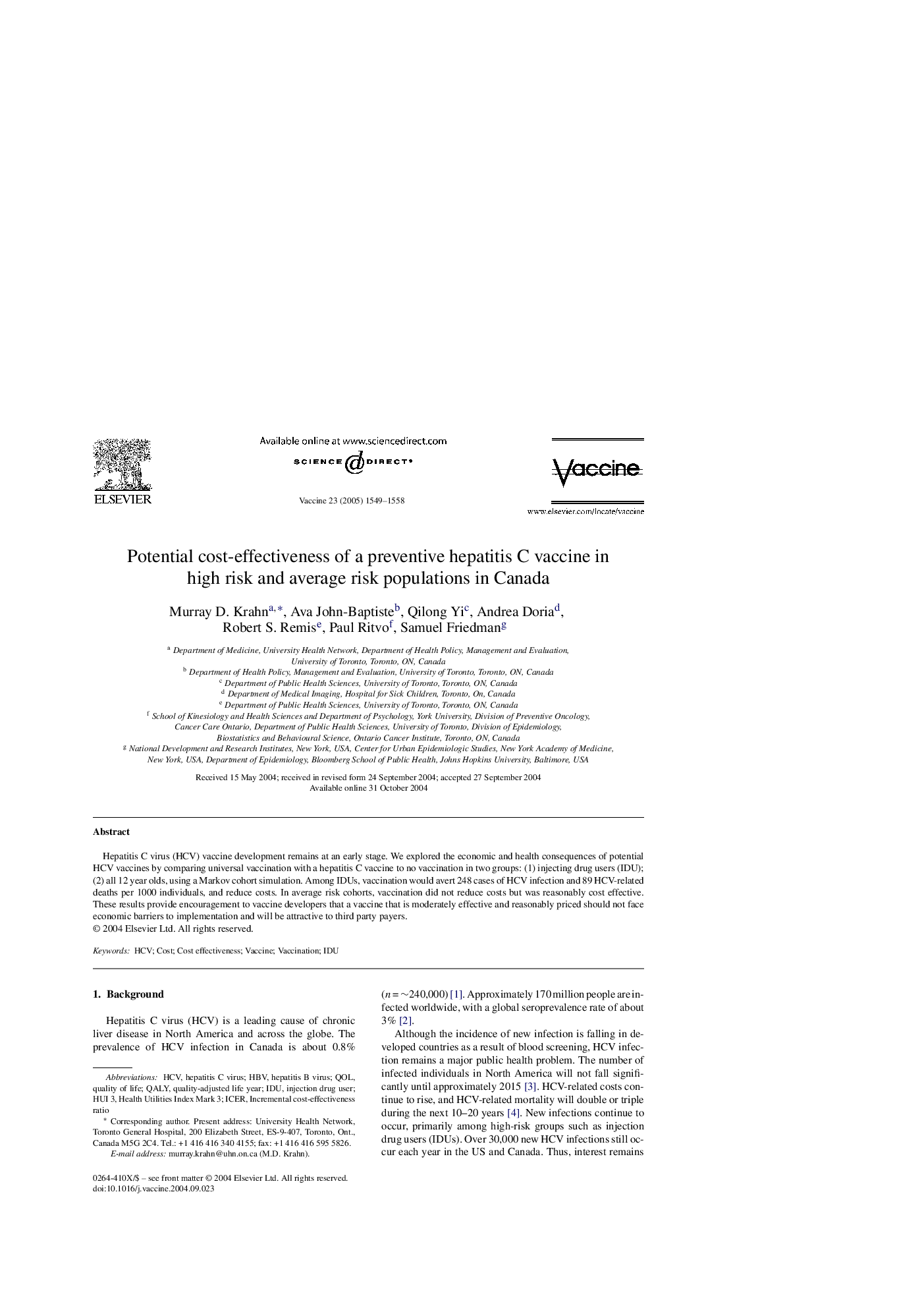| Article ID | Journal | Published Year | Pages | File Type |
|---|---|---|---|---|
| 8969694 | Vaccine | 2005 | 10 Pages |
Abstract
Hepatitis C virus (HCV) vaccine development remains at an early stage. We explored the economic and health consequences of potential HCV vaccines by comparing universal vaccination with a hepatitis C vaccine to no vaccination in two groups: (1) injecting drug users (IDU); (2) all 12 year olds, using a Markov cohort simulation. Among IDUs, vaccination would avert 248 cases of HCV infection and 89 HCV-related deaths per 1000 individuals, and reduce costs. In average risk cohorts, vaccination did not reduce costs but was reasonably cost effective. These results provide encouragement to vaccine developers that a vaccine that is moderately effective and reasonably priced should not face economic barriers to implementation and will be attractive to third party payers.
Keywords
Related Topics
Life Sciences
Immunology and Microbiology
Immunology
Authors
Murray D. Krahn, Ava John-Baptiste, Qilong Yi, Andrea Doria, Robert S. Remis, Paul Ritvo, Samuel Friedman,
